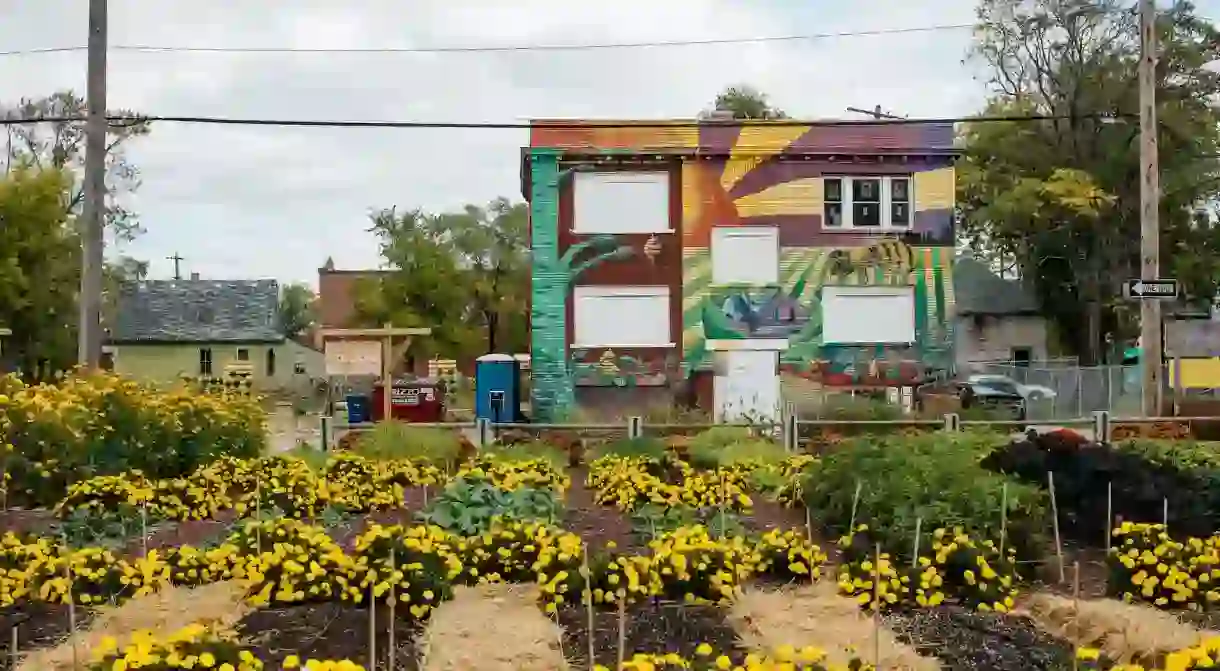The Best Urban Farms in Detroit, MI

Detroit is famously a big city with the feeling of a small town, and in no way is that more apparent than in its various community and charitable endeavors. Urban farming is one of the most popular ways for Detroiters to get involved in a community while also tackling problems like poor diet and inadequate nutritional education.
With plenty of space in the city, the number of farms is steadily growing, and here are just some you could get involved with or donate to.
Keep Growing Detroit
Market, Park
The Michigan Urban Farming Initiative
Park

The Michigan Urban Farming Initiative (MUFI) is another nonprofit organization engaging members of the community through sustainable agriculture. Based in Detroit’s North End community, it has produced over 50,000 pounds of produce since 2011 while also redeveloping a local property and its surrounding area as a model of sustainability and urban renewal. Volunteering for MUFI is extremely flexible, with all ages and abilities welcome to show up without needing to sign up and stay for as long as they’d like.
Oakland Avenue Urban Farm
Market

In the same North End neighborhood as MUFI, the Oakland Avenue Urban Farm is also teaching residents to grow and cook their own food alongside its urban farming. From June to September, it also hosts its own farmer’s market every Saturday, contributing to the local economy and providing fresh produce for locals. They also host events such as concerts, exhibitions, and workshops throughout the summer, giving you many more chances to contribute.
Georgia Street Community Collective
Library, Park
The beginnings of the Georgia Street Community Collective came from Detroit resident Mark Covington who decided to clean up several empty lots near his grandmother’s house. From there, he turned the space into a community garden that provided free food to the neighborhood. It has since evolved into a community enterprise presenting a wide range of services to locals, such as a library, food and clothing giveaways, and seasonal events to enjoy.
Hamtown Farms
Park

In the densely populated city of Hamtramck, which is also one of the country’s poorest, Hamtown Farms, founded by Michael Davis and Julie Swartz, has been providing vital access to free fresh produce since 2012. Through donations, it was able to acquire a number of long-vacant city-owned lots and transform them into a community fruit orchard. They are now home to over 100 fruit trees and raised beds, as well as recreational spaces. Check the website for scheduled volunteer days or to set up a group volunteer event.
RecoveryPark Farms
Market

Taking a slightly different approach, the for-profit RecoveryPark Farms seeks to aid the community by using urban farming to create jobs for people with barriers to employment. This commercial-scale agriculture project, which leverages the city’s underutilized workforce and abundant open space, is producing high-quality and locally grown produce for some of the city’s top restaurants while reinvigorating a blighted neighborhood.
Earthworks Urban Farm
Market
The Earthworks Urban Farm, founded in 1998, is an offshoot of the Capuchin Soup Kitchen. On its 2.5-acre farm, the only certified organic farm in the city, it grows a year-round harvest of vegetables and fruit, with the majority of the produce used for meals at the kitchen and a weekly market stand during certain times of the year. It also provides gardening classes and training for both adults and youth. To get involved, it has regular volunteer hours on Wednesdays and Saturdays throughout most of the year.













